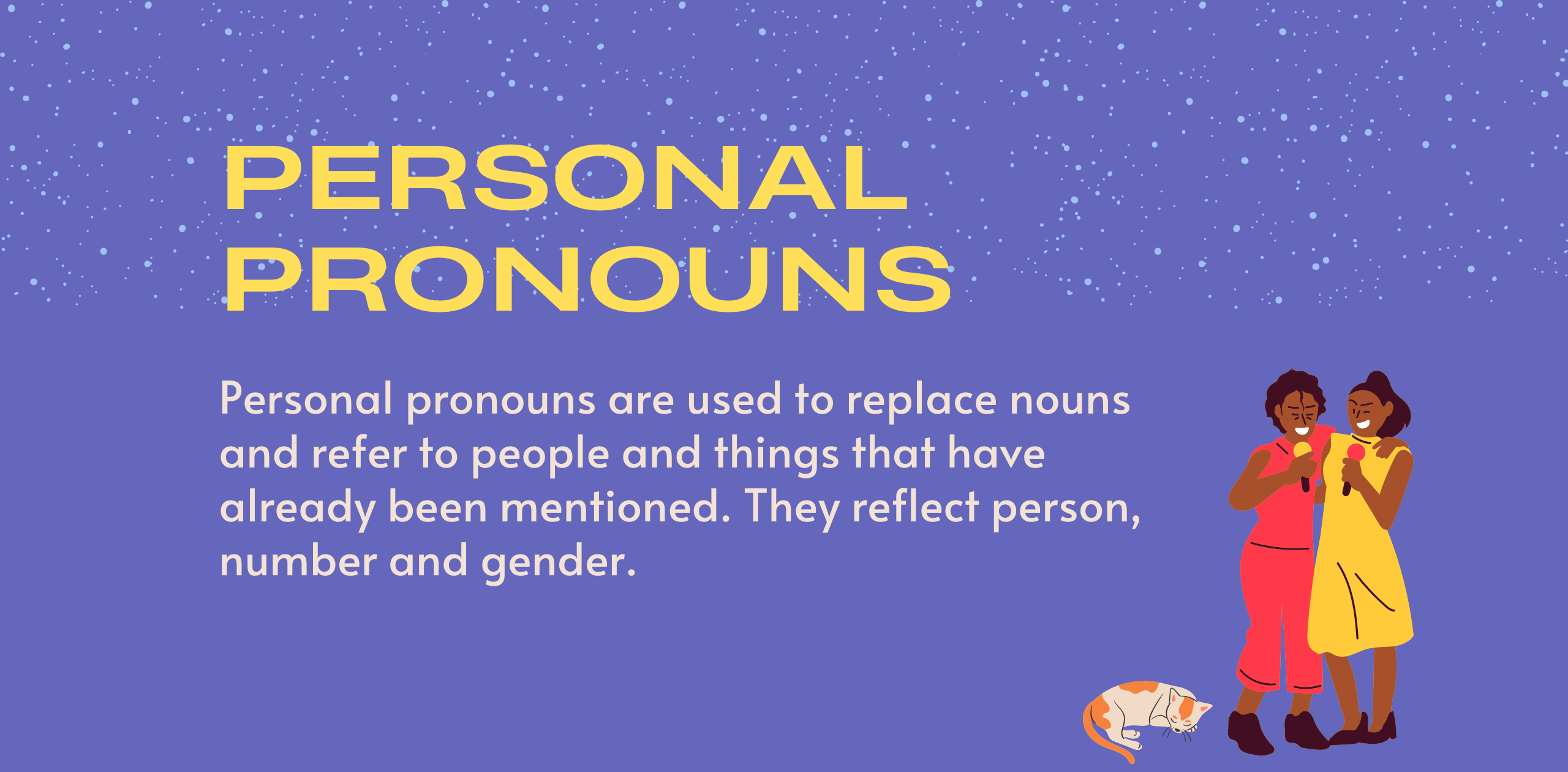CONTENT

Personal pronouns are used in English to replace nouns and refer to people and things that have already been mentioned. They reflect person, number and gender.
Personal pronouns have different forms and can be the subject or object of a sentence. Here is an overview of personal pronouns in English:
| Singular | Plural | |
|---|---|---|
| Subject | I, you, he/she/it | we, you, they |
| Object | me, you, him/her/it | us, you, them |
| Singular | Plural | |
|---|---|---|
| Subject | I, you, he/she/it | we, you, they |
| Object | me, you, him/her/it | us, you, them |
Usage
Rule 1: Use the first-person pronouns I/we to talk about yourself in singular or plural.
Example
Explanation
I have a sister. We don't look alike.
I/we are personal pronouns used to talk in first person.
Rule 2: Use the second person pronouns you (the same in singular and plural) to address other people.
Example
Explanation
Do you understand what I'm trying to tell you?
You is a personal pronoun used to address the conversation partner.
Rule 3: Use the third person personal pronouns he/she/it in the singular and they for the plural to refer to people and objects or replace previously mentioned noun.
Example
Explanation
I have a sister. She is older than me, and her name is Cindy.
Singular personal pronouns she and her are used to replace the noun sister.
I also have two little brothers. They are at school right now.
They is a plural personal pronoun used to replace noun brothers.
Note: Also, the pronoun it can be used in impersonal constructions.
Example
Explanation
It's snowing.
It is a personal pronoun used in an impersonal construction.
Subject vs. Object?
Rule 5: We can use subject pronouns to replace the subject (the person or thing that is performing the action) in a sentence.
Example
Explanation
He likes to play football.
He is a subject pronoun used to replace the subject, i.e., person that likes to play football.
Rule 6: We can use object pronouns to replace the object (the person or thing that is the direct recipient of the action) in a sentence.
Example
Explanation
I miss them.
Them is an object pronoun used to replace the objects that the subject of the sentence misses.
Note: Also, we can use object pronouns after prepositions.
Example
Explanation
Will Andy be at the party tonight? I will bring something for him.
Him is an object pronoun used to replace the noun Andy and comes after the preposition for.
Learn English with Langster
Gender
Rule 7: We only use the third person pronouns to show gender in English. We use he/him for men and she/her for women.
Note: The third person plural pronouns they/them are used as gender-neutral pronouns in the singular and it is used for everything else. The only exception are animals when we have a personal connection to them - for example, pets.
Example
Explanation
You should hire an attorney, they will be able to provide you with professional advice.
Plural pronoun they is used to replace singular noun an attorney to keep it gender neutral, as we don't know their gender yet.
What a lovely cat! How old is it?
It is a personal pronoun used to refer to an animal with whom the speaker doesn't have a personal connection.
This is my dearest pup Huxley. Do you want to hold him?
Him is a personal pronoun that shows a gender and used to refer to a pet with whom speaker has a personal connection.
Quiz
1/4
Choose the right personal pronoun. Tyler and Josh met at high school. Later, ___ started a band together.
0
correct answers.





